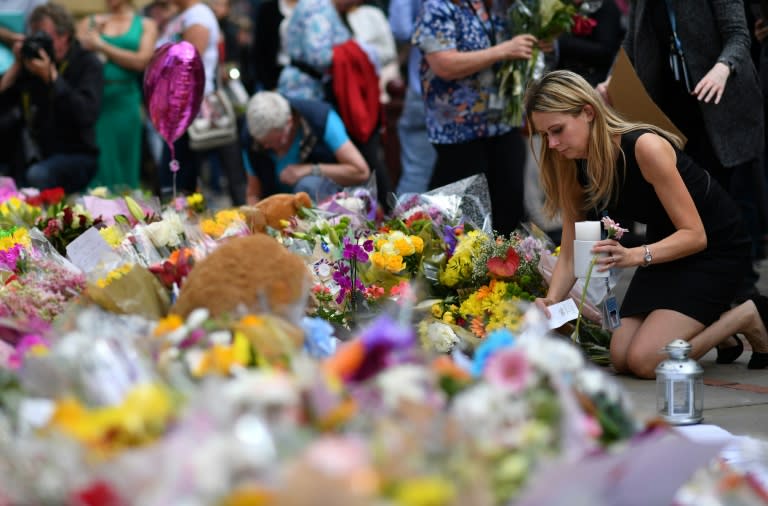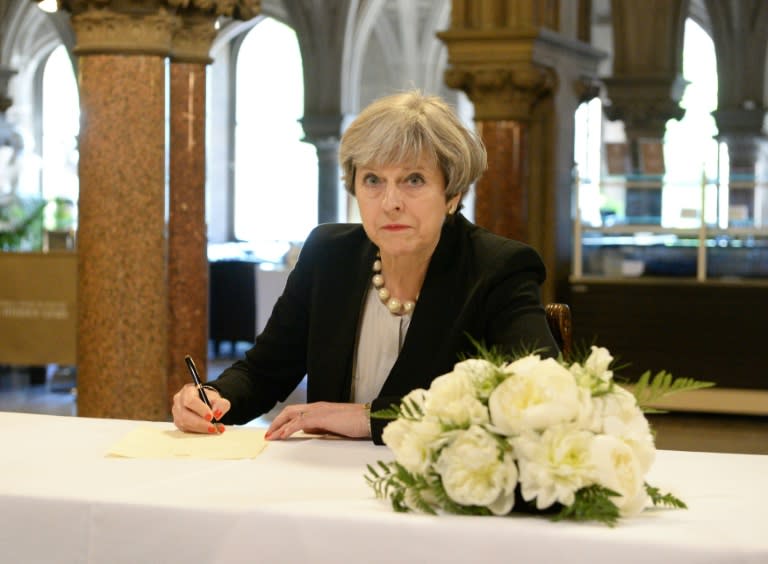Security in focus as UK election campaign set to resume
Britain's election campaign is to resume Thursday after being brutally halted by the Manchester pop concert massacre -- and the issue of security is expected to be at the fore. The governing Conservatives and the main opposition Labour Party said they would resume local campaigning on Thursday ahead of the general election on June 8, following a nationwide minute of silence at 11:00 am (1000 GMT). National campaigning involving Conservative Prime Minister Theresa May and Labour leader Jeremy Corbyn would then resume on Friday, party officials said. "Terror will not... derail our democratic process," Corbyn said. "Resuming democratic debate and campaigning is an essential mark of the country's determination to defend our democracy," he said. May and Corbyn had suspended campaigning -- along with the leaders of other parties -- after the suicide attack that struck a pop concert in Manchester, northwest England, which killed 22 people and injured dozens more. The hiatus came at a time when May was on the back foot after being forced last week to amend a key part of her manifesto for funding elderly care. Corbyn was also coming under heavy criticism for an interview in which he repeatedly declined to unequivocally condemn the Irish Republican Army (IRA) paramilitary group, which launched deadly bomb attacks across the UK. - Labour cutting Tory lead - Labour had been gaining ground on the Conservatives in opinion polls before the attack but was still trailing, and many Labour lawmakers had been itching to get back onto the streets to make their case. Even before the attack by the suicide bomber Salman Abedi, Corbyn was under fire over his security credentials. The veteran socialist has long been opposed to nuclear weapons, and a history of support for Irish republicanism, including defending IRA suspects. By contrast, May spent six years as Britain's interior minister starting in 2010. "If security and terrorism become more prominent then I can only see one winner from this -- Theresa May," said Steven Fielding, a professor of politics at the University of Nottingham. Both of the main parties' manifestos were published before the Manchester attack. The Conservatives say they would be "resolute in defending the country from terrorism and other security threats". They pledge to deliver "security from crime and terrorism, backed by a new national infrastructure police force" and a "world-leading counter-terrorism strategy" to protect against terror. Labour say they would review the Prevent anti-radicalisation programme to assess its effectiveness and "potential to alienate minority communities". "We will address the government's failure to take any effective new measures against a growing problem of extreme or violent radicalisation," it says. Since the attack, May has made several television appearances, either providing updates on the police investigation, or meeting with emergency workers. Corbyn meanwhile has been restricted to a few statements, and he attended a vigil by thousands of people in Manchester on Tuesday. After May announced Tuesday that Britain's terror threat had been raised to its maximum level and that troops would be deployed to guard key landmarks, mainstream politicians largely held back from commenting on her plans. But debate has raged on social media over cuts to police numbers and whether Abedi, who had been known to the security services, could have been stopped. - 'Politics never more important' - The smaller, centrist Liberal Democrats indicated earlier that they could allow local campaigning from Thursday. The anti-EU UK Independence Party cancelled its planned manifesto launch on Wednesday, but said it would go ahead on Thursday. "It is by prolonging the disruption to normality that we allow the terrorists to win," UKIP leader Paul Nuttall said. "Politics has never been more important, politicians must deal with these issues." Fielding said it would be "naive" to think there had been any real campaign halt, however, noting that leaflets mailed before Monday were now arriving. "There was an electoral truce only in a limited sense. There is no end to the political warfare," he told AFP.






